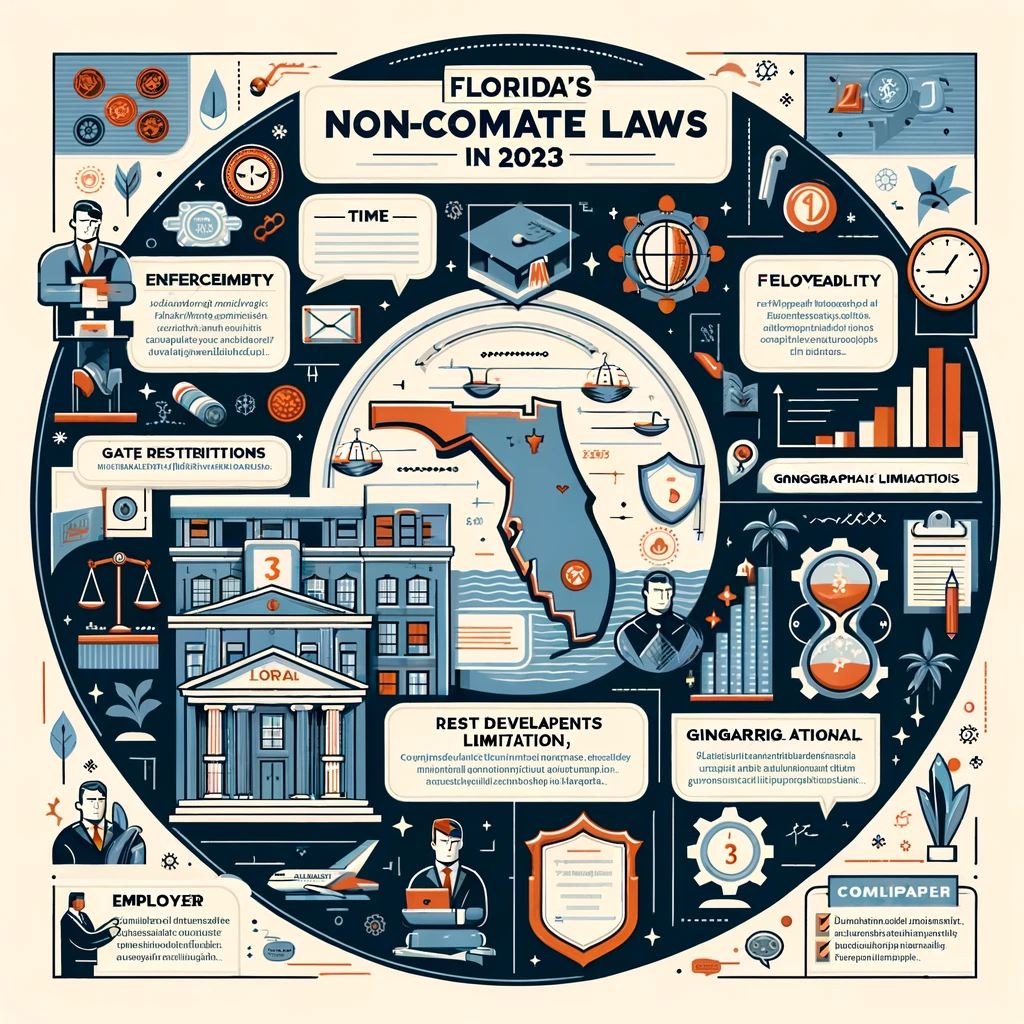lorida's Non-Compete Laws 2023: A Comprehensive Guide

Introduction
In 2023, Florida's non-compete laws continue to play a pivotal role in the landscape of employment and business agreements. Governed by Section 542.335 of the Florida Statutes, these laws are designed to balance the protection of legitimate business interests with the rights of individuals to seek employment. This guide delves into the nuances of Florida's non-compete laws, offering insights into their enforcement, limitations, and practical implications for both employers and employees.
Understanding Florida's Non-Compete Laws
Florida's approach to non-compete agreements is among the most employer-friendly in the United States. The state's legislation permits these agreements under certain conditions, emphasizing the protection of legitimate business interests, including trade secrets, confidential business information, and established customer relationships.
Legal Requirements for Enforceability
For a non-compete agreement to be enforceable in Florida, it must be written and signed by both parties. It should protect a legitimate business interest as defined by the statute and be reasonable in time, area, and line of business. The Florida Legislature's official site provides detailed information on the specific requirements.
Time Restrictions
The duration of the non-compete agreement is critical to its enforceability. In Florida, the law specifies acceptable time frames based on the role of the person subject to the non-compete. For example, agreements with former employees, agents, or independent contractors typically cannot exceed two years. For more details, refer to the Florida Statutes Section 542.335.
Geographical Limitations and Legitimate Business Interests
The geographical scope of a non-compete must be reasonable and tied to the area where the employer operates and needs protection. The law is designed to protect legitimate business interests without unduly restricting an individual's ability to work. The University of Florida's Levin College of Law often discusses the balance between business interests and personal freedoms in its publications.
Recent Developments and Legal Interpretations
Changes in legislation, court rulings, and societal norms can influence how non-compete agreements are viewed and enforced. In 2023, it's essential to stay informed about any developments that may affect the legality and enforceability of these agreements in Florida.
Court Cases and Precedents
Recent court cases in Florida have further clarified the application of non-compete laws, especially concerning the definition of legitimate business interests and reasonable geographical limitations. Legal databases like FindLaw or the Florida Supreme Court's website are excellent resources for exploring current legal precedents.
Legislative Updates
Given the dynamic nature of employment law, legislative updates can significantly impact non-compete agreements. Monitoring the Florida Senate's website for new bills and amendments is crucial for staying compliant and informed.

Create & Review Your Contracts 10x Quality and Ease
Lawyer-level AI handles all your contract needs, with real lawyers providing safeguarding support

Strategies for Employers and Employees
Employers looking to enforce non-compete agreements and employees seeking to understand their rights can take several steps to navigate Florida's legal landscape effectively.
Drafting Enforceable Agreements
Employers should work with legal counsel to ensure that non-compete agreements are tailored to meet statutory requirements and reflect the latest legal standards. Clear, reasonable, and specific agreements are more likely to be upheld.
Evaluating and Contesting Non-Compete Agreements
Employees faced with signing or contesting a non-compete agreement should seek legal advice to understand their rights and obligations. Resources like the Florida Bar's Consumer Pamphlets provide valuable information on employment agreements and legal services.
Conclusion
Florida's non-compete laws in 2023 remain a critical element of the state's employment and business legal framework. Understanding these laws' intricacies is essential for employers to protect their interests effectively and for employees to navigate their careers with confidence. As the legal landscape continues to evolve, staying informed through reputable legal resources and professional advice is paramount.

